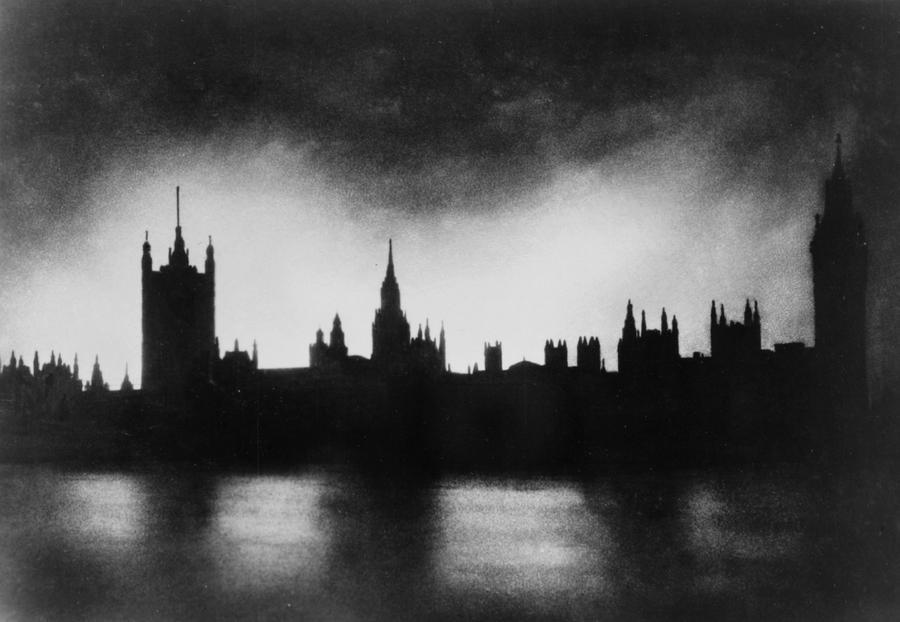 Why Westminster Has Yet Again Failed the People Of Northern Ireland.
Why Westminster Has Yet Again Failed the People Of Northern Ireland.
By 388 votes to 112 the House of Lords voted this evening to press ahead with the imposition of abortion laws on Northern Ireland.
The Regulations will now go to the House of Commons where they will probably be debated on Wednesday June 17.
Constituents who care about this should now make urgent representations to their MPs
If the Commons refuses to approve the regulations the Government will be forced to redraft them and bring forward less extreme proposals. The issue would then return to Northern Ireland’s democratically elected Assembly.
In any event, MPs also need to be asked how they can justify extending a law which has already taken 9 million lives in Great Britain – one every three minutes.
And, how they can do this on the back of a debate in which Peers were told they could only make one minute speeches.
Two exceptions to the lack of due process in this “Just a Minute” debate has made a mockery of democracy.
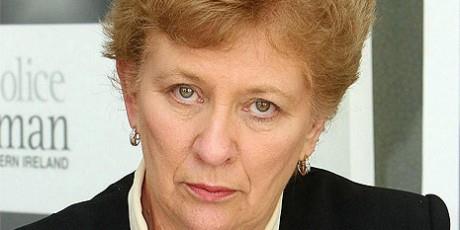
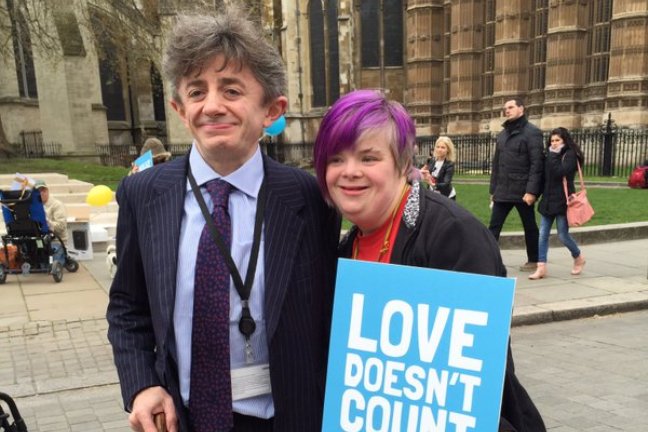
Two exceptions were the speeches by Baroness (Nuala) O’Loan, who was able to move a Motion in opposition and Lord (Kevin) Shinkwin, who was able to move a further Motion and explain why the regulations discriminate against people with disabilities.
18 of the speeches were against the Regulations and 20 were for but the Front Benches of the political parties were given extra time to make their speeches in favour of the imposition of abortion laws while Northern Ireland Peers – drawn from three other political parties – were disgracefully given none.
Imagine the consequences if the Scottish Parliament were treated in this manner.
The political elites wonder why people have become so alienated and disillusioned with them – this evening’s proceedings should give them the answer.
Repeatedly Parliament has been told that these Regulations have to be enacted because of CEDAW (the Convention on the Elimination of All Forms of Discrimination against Women) and because abortion is “a human right.” Both of these statements are wrong.
In the 30 Articles of the Universal Declaration of Human Rights there is no human right to abortion. Quite the reverse: the UDHR insist that everyone has the right to life.
And to be clear, the CEDAW Convention makes no mention of abortion.
Moreover, the Committee Report, which is only binding because we have made it so, expressly condemns disability-discriminatory and sex-selective abortions which these Regulations do not.
The Regulations fly in the face of devolution and ignore the overwhelming and united views of Northern Ireland’s majority – manifested in polls and the recent vote of the Northern Ireland Assembly.
And these Regulations also fail the good governance test.
The House of Lords Secondary Legislation Scrutiny Committee said the time provided for consultation – which generated 21,000 responses, with 79% opposed – was “too short for so sensitive a topic” concluding that Parliament was denied “an opportunity for scrutiny before the instrument came into effect.”
Ignoring the House of Lords’ own Scrutiny Committee, the devolved Assembly, and the considered views of disability groups, charities and the Attorney General of Northern Ireland will simply bring Parliament into disrepute and are a slap in the face of devolution, good governance, due process, and just laws.
Above all, it was a bad day for future generations as yet unborn and who now never will be.
https://www.dailymail.co.uk/debate/article-8420283/Like-slavery-daughter-law-treats-fully-human.html
Also see:
and
====================
https://www.ncbi.nlm.nih.gov/pmc/articles/PMC3281173/
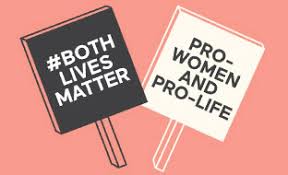
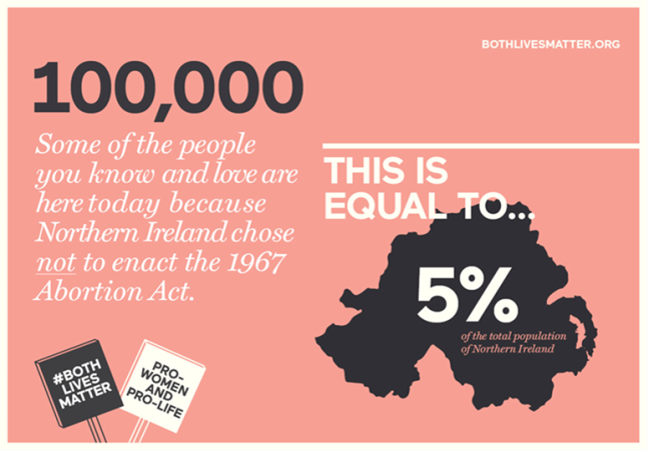
The Leading Human Rights Campaigner Jasvinder Sanghera CBE Urges MPs to Wake up to the Problem of Sex Selective Abortion and Vote Against the Complacent New Abortion Regulations on Wednesday
Last week two Government Ministers, when questioned about the fact that new abortion regulations make abortion on the basis of sex lawful, denied that this was the case. Now the Government U-turns acknowledging that the regulations make sex selective abortion lawful to 12 weeks gestation in Northern Ireland, which is not the case in Great Britain. On Wednesday the Government will ask all UK MPs to vote, for the first time, to facilitate sex selective abortion, a practice they recently described as ‘abhorrent.’
Today leading human rights campaigner and expert on forced marriage and sex selective abortion urges MPs:
‘Please don’t vote for these regulations as currently drafted. Please don’t vote to accommodate sex selection abortion. Any vote by UK parliamentarians to sanction this would send a signal that sex selective abortion should be accommodated in the UK, not just in Northern Ireland, when it should have no place in any part of the country today. Our laws should be changed to make it clearer that sex selective abortion is not acceptable, not changed to accommodate this abusive practice.’
When asked why the Regulations make-sex selective abortion lawful on 8 June, Viscount Younger dismissed the premise of the question in very forthright terms.
‘I make it clear to my noble friend that the abortion regulations do not allow abortions on the grounds of sex selection.’
On the same day Robin Walker MP, the Under Secretary of State was similarly clear:
‘An abortion on the grounds of sex-selection is not one of the lawful grounds for a termination of pregnancy under the Abortion (Northern Ireland) (No. 2) Regulations 2020.’
On Monday evening (15 June), however, when asking Lords to vote through the Regulations, the Minister, Viscount Younger was challenged on the matter again after the publication of an expert legal opinion by Brett Lockhart QC saying that the Ministers were wrong. Viscount Younger, without acknowledging that his answer on the 8th June was wrong, did not deny that the regulations make sex selective abortion lawful.
Responding to these developments Jasvinder said:
‘For anyone with experience of sex selective abortion the Minister’s response is deeply disturbing.
First, he did not apologise for his previously misleading forthright statement, which suggests that he did not regard the subject as important.
Second, he failed to acknowledge in any way the enormity of what he was saying. In 2014 after a Telegraph investigation uncovered what was already well known, namely that sex selective abortions were being offered on the NHS, the House of Commons voted 181 votes to 1 to ban sex elective abortions. In 2015 an amendment was moved to a Bill to give effect to this objective. The Government responded by saying that sex selection was indeed an ‘abhorrent’ practice but that there was no need to change the law because abortion on grounds on sex was already illegal. They pointed that since abortion is only legal on the grounds of the Abortion Act and none of those grounds is the sex of the feotus, that sex selective abortion was not lawful. As recently as January 28 this year they confirmed that that was still the case.
The Government’s attempt to justify the change simply don’t stand up to scrutiny:
First, the Minister said it was important to appreciate that doctors would not have to provide an abortion if they had concerns about why the abortion was being sought. That is completely beside the point. What the Telegraph investigation revealed is that some doctors are happy to provide sex selective abortions.
Second, rather conceding that sex selection is a problem, they then sought to defend it by pointing out that you can’t find out the sex of the foetus from the NHS until 18 weeks, failing to acknowledge that NIPT is developing quickly and can confirm sex from between 7 and 10 weeks and that you can access it privately at 10 weeks in Northern Ireland.
Third, attempts have also been made to suggest that other countries had made sex-selective abortion lawful without difficulty. In truth very few countries have done so and the country that has done so the longest, Canada, has been acknowledge by the Canadian Medical Association Journal as making Canada a haven for sex selective abortion.
On top of this he then sought to justify moving to an arrangement that has the effect of rendering abortion lawful for any reason, and therefore for the sex of the foetus, on the basis that this was the best way of achieving compliance with the CEDAW Committee Report, when this clearly states:
‘…the Committee aligns itself with the Committee on the Rights of Persons with Disabilities in the condemnation of sex-selective and disability-selective abortions, both stemming from the need to combat negative stereotypes and prejudices towards women and persons with disabilities.’
Those of us who know something about the reality of this problem in modern Britain see a government that is in complete denial, which is deeply troubling.
Creating a situation where it is lawful to seek termination on the basis of sex till 12 weeks will create an incentive for some people from Great Britain to travel to Northern Ireland so they can seek a sex selective termination with peace of mind, knowing that what they are doing is entirely legal.
The fact that the Government are in denial about sex selection is confirmed by their suggestion that in England and Wales the practice of sex selection is not sufficiently prevalent to distort birth ratios. Whilst we may never, in the UK, witness the devastating effects that may be caused by prevalence of this practice at a societal level, I know from my own experience the impact of the pressure felt by some women in our community. It is very real, and its effects are toxic. In that context the signal that would be sent if parliamentarians vote for these regulations this week, as currently drafted, would be very dangerous.
The Government should withdraw these Regulations and come back with a proposal that rather than sending the message that sex selection is lawful in early pregnancy, sends the message that sex selective abortions have no place in Britain today. This can be achieved by following the example of the Isle of Man which, when introducing abortion on request in 2018, explicitly outlawed abortion on the grounds of the sex of the baby except where there is reasonable risk the child would have a gender dependent genetic condition. If the Government does not do this then MPs should reject these Regulations as currently drafted and ask the Government to think again.
That this legislation permits sex-selective abortion disregards a number of declarations made in international law which strongly condemn the practice and require states to legislate for its prohibition. This includes: a 1996 resolution of the UN Commission on Human Rights; a 1998 resolution of the UN General Assembly Resolution which recognised it as a form of violence against girls; and a statement from the 1994 International Conference on Population and Development which classed it as a form of discrimination and the Beijing Platform for Action which requires Governments to ‘Eliminate all forms of discrimination against the girl child…which result in harmful and unethical practices such as prenatal sex selection …often compounded by the increasing use of technologies to determine foetal sex, resulting in abortion of female foetuses’
If we permit this practice in Northern Ireland we will be doing so in clear violation of international ethical standards.
Further Background:
1) The Abortion (Northern Ireland) Regulations 2020 are to be voted on in the House of Commons on Wednesday (17 June).
2) Ministerial Answers from last week
On 8 June Baroness Eaton asked the Minister in the Lords Viscount Leckie:
‘My Lords, will my noble friend the Minister say why Regulation 3, unlike the Abortion Act 1967, makes abortion on the basis of sex lawful in the first 12 weeks of pregnancy? Given that it is now possible to know the sex of the foetus between seven and 10 weeks, and that the CEDAW report expressly condemned sex-selective abortion, why does that regulation make it lawful? What meetings have the Government had with the organisation Stop Gendercide in considering how to define these regulations?’
Viscount Leckie replied
‘I make it clear to my noble friend that the abortion regulations do not allow abortions on the grounds of sex selection. My noble friend may be aware that the UK Government publish an annual analysis of the male to female birth ratio in England and Wales to check for any evidence—for example, if there are more girls than boys aborted. The last one was in October 2019 and there was no evidence to show.’
Fiona Bruce MP, meanwhile, tabled the following Written Parliamentary Question 54088.
‘To ask the Secretary of State for Northern Ireland, pursuant to the Answer of 21 January 2020 to Question 6069, what steps he will take to prevent sex selective abortion under the Abortion (Northern Ireland) (No 2) Regulations 2020.’
Mr Robin Walker replied:
‘An abortion on the grounds of sex-selection is not one of the lawful grounds for a termination of pregnancy under the Abortion (Northern Ireland) (No. 2) Regulations 2020.
The UK Government takes any suggestion of sex-selective abortion seriously and has conducted a careful study of the data in GB which shows no evidence that it has been taking place.
Data collection and publication on abortion related issues in Northern Ireland is a matter for the Department of Health in Northern Ireland to take forward.’
3) Viscount Younger’s response this week:
‘Turning to sex selection, raised by the noble Baroness, Lady O’Loan, and my noble friend Lady Eaton, medical practitioners are under no obligation to provide treatment in all cases under Regulation 3, irrespective of the absence of an express requirement for the woman to meet a legal test for gestations up to 12 weeks. That would particularly be the case where the practitioner has concerns that the woman is conflicted and undecided on whether to proceed with the abortion, where they have reason to believe that the woman has been coerced or put under pressure by a partner or family member to proceed, or where other issues of concern are identified. Furthermore, in Northern Ireland under the NHS, scans to detect the sex of the foetus take place between 18 and 21 weeks’ gestation.’ Hansard, House of Lords 15 June col 1996
4) Legal Position on sex selection in Great Britain
On 21 January Fiona Bruce MP tabled:
‘To ask the Secretary of State for Health and Social Care, whether his Department is taking steps to ensure that gender-selective abortions are not carried out in UK.
On 28 January Caroline Dinenage answered:
‘Sex selection is not one of the lawful grounds for termination of pregnancy. It is illegal for a practitioner to carry out an abortion for that reason alone, unless the certifying practitioners consider that an abortion was justified in relation to at least one of the grounds in the Abortion Act 1967 such as a sex-linked inherited medical condition.
We have no evidence that sex related abortions are taking place in Great Britain. The latest analysis by the Department found that the United Kingdom gender ratio over the period 2013 to 2017 was 105.4 male to 100 female births, which is within the normal boundary. The Department continues to keep this under review.’
5) Canadian Medical Association Journal article on sex selective abortion in Canada

